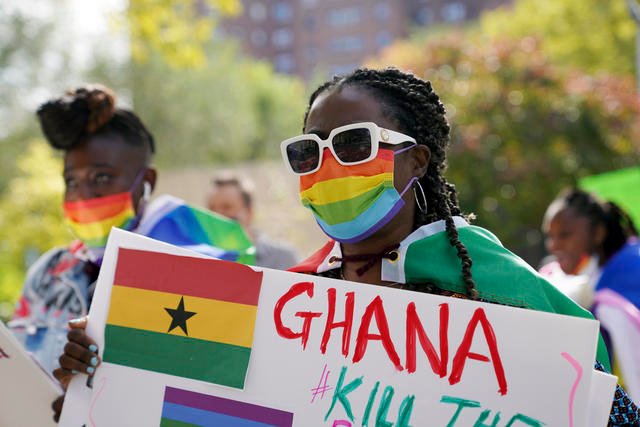Ghana’s Parliament Approves Tough Anti-LGBTQ Legislation
Ghana’s parliament has recently passed legislation that further tightens the restrictions on the rights of LGBTQ individuals and those advocating for non-conventional sexual or gender identities in the West African nation. The move reinforces existing laws that already render gay sex punishable by a prison term of up to three years. The newly passed bill extends this punitive measure to include a potential prison sentence of up to five years for the “wilful promotion, sponsorship, or support of LGBTQ+ activities.”
This legislation, considered one of the most severe in Africa, awaits presidential assent to become law. However, it is unclear whether President Nana Akufo-Addo will endorse the bill. The president has not yet confirmed his stance on the legislation.
Sponsored by a coalition of Christian, Muslim, and traditional Ghanaian leaders, the bill underscores the influence of religious and cultural values in shaping the country’s legal landscape. The collaboration between these diverse groups highlights a united front against what they perceive as non-traditional sexual and gender expressions.
This development reflects a broader trend in Africa, where several countries have adopted or strengthened laws restricting LGBTQ rights. The legislation not only criminalizes specific actions but also targets those actively supporting or advocating for LGBTQ+ rights. Critics argue that such laws infringe upon fundamental human rights, including freedom of expression and association, while proponents often frame them as efforts to preserve cultural and religious values.
As the bill awaits the president’s decision, it raises questions about the future of LGBTQ+ rights in Ghana and the ongoing global conversation surrounding human rights and inclusivity. The international community will likely closely monitor the situation, particularly regarding any potential impacts on the LGBTQ+ community and activism in Ghana. The outcome of this legislative move will significantly shape the social and legal landscape concerning sexual and gender diversity in the country.

















